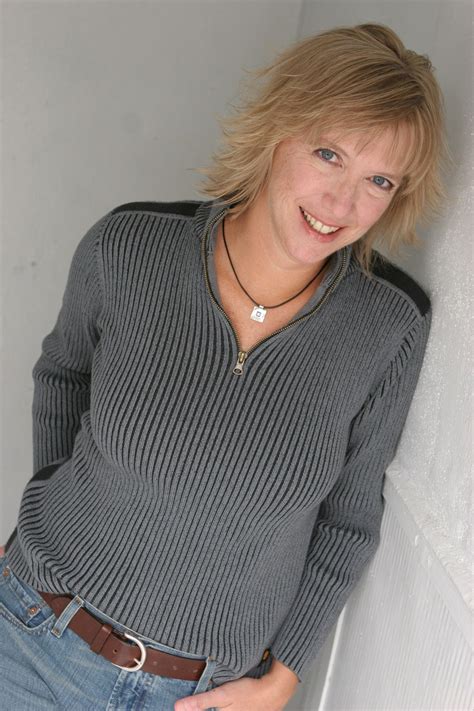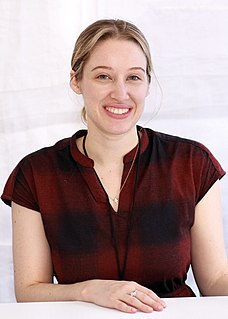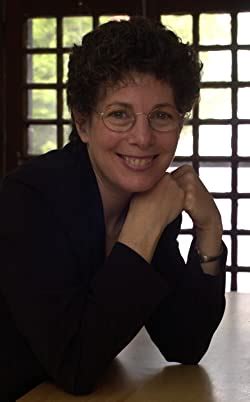A Quote by bell hooks
When I write provocative social and cultural criticism that causes readers to stretch their minds, to think beyond set paradigms, I think of that work as love in action. While it may challenge, disturb and at times even frighten or enrage readers, love is always the place where I begin and end.
Related Quotes
I love the fact that so many of my readers are intelligent, exceptional, accomplished people with an open-minded love of diversity. But even more than that, I love it when my readers find lasting friendship with others of my readers - knowing that they met through their mutual affection for my books and characters makes me happy!
The challenge is always to find the good place to end the book. The rule I follow with myself is that every book should end where the next book would logically begin. I know that some readers wish that literally all of the threads would be neatly tied off and snipped, but life just doesn't work that way.
I think movies do play a valuable role in turning people on to the act of reading. I think that phenomenon just creates readers. At first they're going to love 'Harry Potter,' or they may love 'The Hunger Games,' but after that, they're going to love the act of reading and wonder, 'What else can I read?'
Chats are so new to newspapers, historically. But they're so incredibly valuable because editors/reporters/columnists get to find out what's on the minds of our readers, what you think we should be writing about, what ticks you off, what makes you happy. Sometimes it can confirm what you think readers are interested in; sometimes it can turn you around 180 degrees.
Readers tell me that my novels are filled with significant mothers. Do I realize this? Do I do it on purpose? The truth is, I don't. I think of myself as a writer of family stories. I write more often than not from a male point of view, and I usually begin by focusing on siblings, spouses, even fathers, before I think about the mothers.
I try to keep deep love out of my stories because, once that particular subject comes up, it is almost impossible to talk about anything else. Readers don't want to hear about anything else. They go gaga about love. If a lover in a story wins his true love, that's the end of the tale, even if World War III is about to begin, and the sky is black with flying saucers.
Some readers sort of suspect that you have another book that you didn't publish that has even more information in it. I think that readers sort of want to be taught something. They have this idea that there's a takeaway from a novel rather than just the being there, which I think is the great, great pleasure of reading.
I've always kind of thought that reviews written by readers for readers are a kind of private space between consumers. It's their right to say anything they like about your material, and authors need to know that and respect that. As for my end, I'm aware of what my sales are, so I know that my books are working in the marketplace, at least for now, and beyond that, I have to just do my thing and stay focused.




































